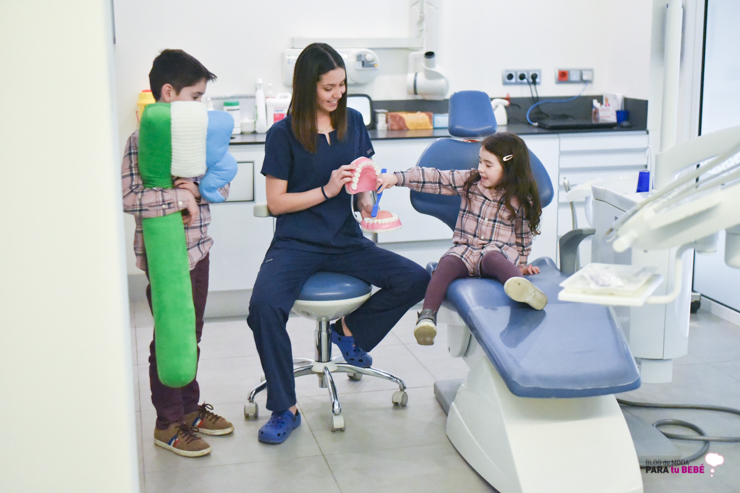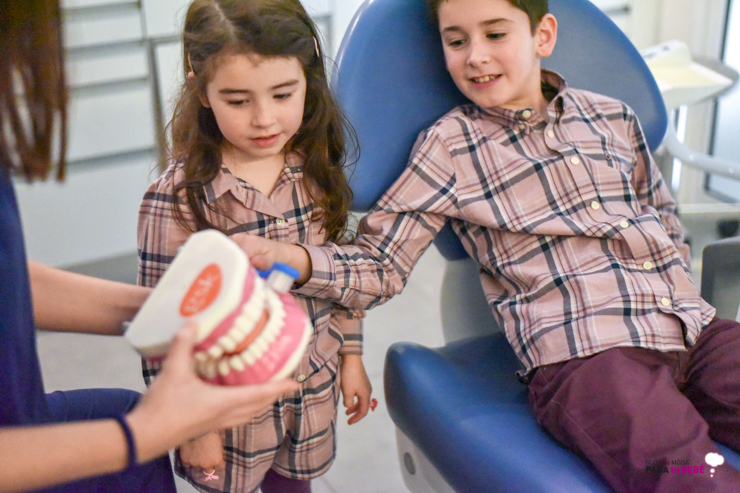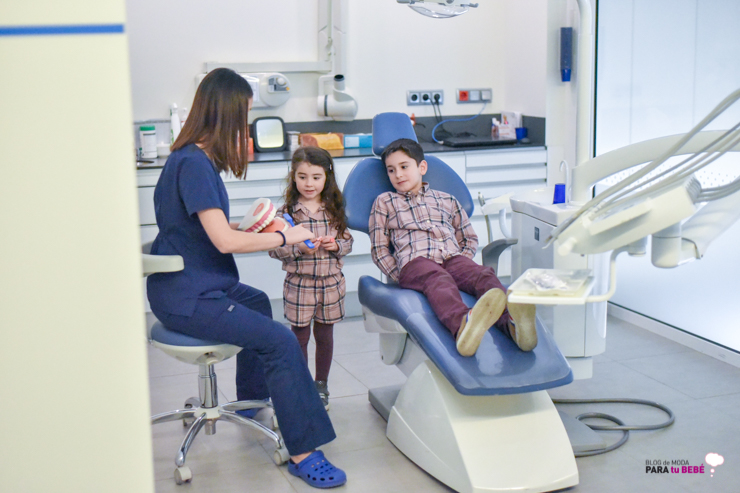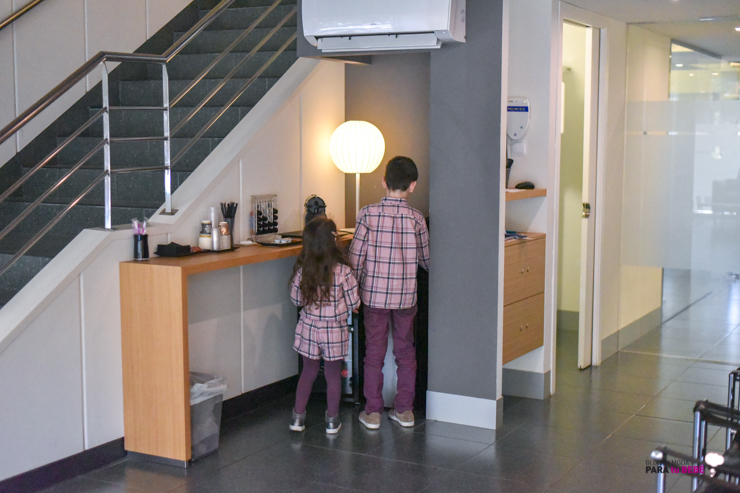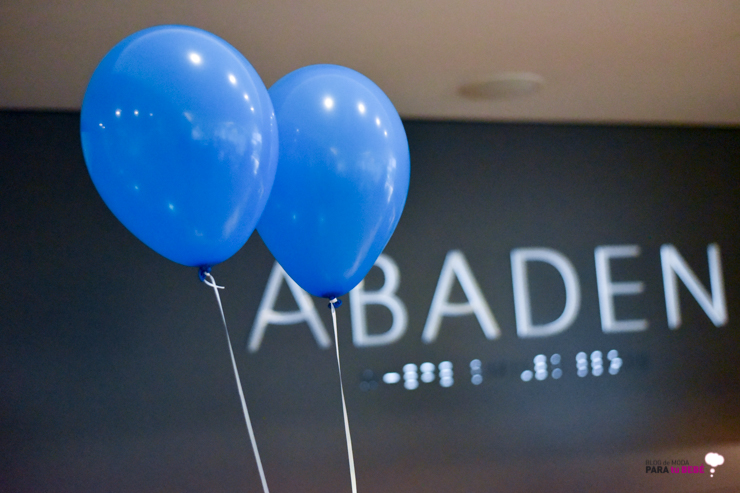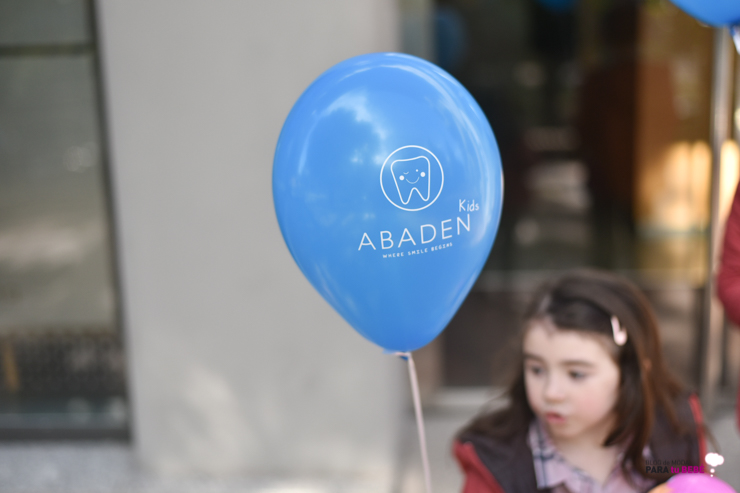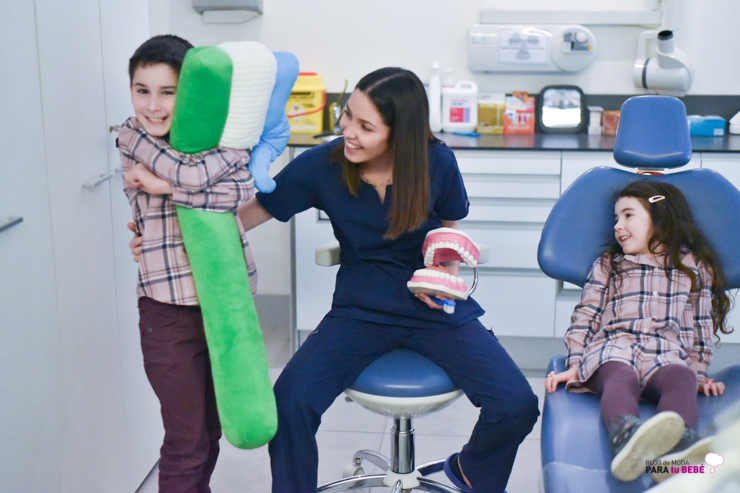Es un mito pensar que, como los dientes de leche se caen, no se tiene que cuidar ni tratar ¿A qué edad llevasteis por primera vez a vuestros hijos al dentista? Con Jorge empezamos a los 4 años y medio y con Valentina a los 5 años. Al primero se le había caído un diente pero con la peque no hemos esperado. Quisimos ver qué tal tenía los dientes de leche porque una buena salud bucodental contribuye a prevenir problemas en la vida adulta. Como yo estoy cuidando mi boca en Abaden Dentistas fui con ellos a esta clínica. ¿Sabéis qué es lo que más me ha gustado? que tienen odontopediatras, es decir especialistas de la odontología que saben tratar con niños. No ocurre en todos los centros pero si en los de Abaden que podéis encontrar en toda Cataluña y son clínicas propias, no franquicias. De hecho, se trata de una empresa familiar con más de 32 años de experiencia creando sonrisas, un valor que me aporta aun más tranquilidad a la hora de confiar en ellos el cuidado de mis dientes y el de mis hijos. Seguid leyendo para conocer todos los beneficios de la odontopediatría.
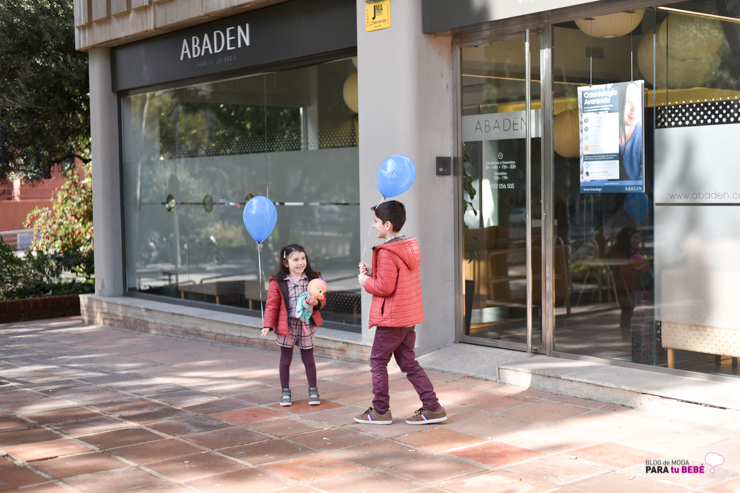
La odontopediatría es la rama de la odontología encargada de tratar a los niños. El odontopediatra es el encargado de explorar y tratar a niños y recién nacidos. También se encarga de detectar posibles anomalías en la posición de los maxilares o dientes para remitir al ortodoncista y de hacer un tratamiento restaurador en caso de necesitarlo, generalmente tratar los traumatismos, usar selladores para obturar y tratar las caries producidas y sus consecuencias.
Seguro que alguno de vuestros hijos se ha dado un golpe, se ha roto un diente o ha tenido caries. Ir al dentista no nos gusta a ninguno pero a los peques les da especialmente miedo. El primer día no dicen nada porque es algo desconocido pero el segundo ya no quieren volver. De ahí que sea importante saber tratar con ellos. En Abaden lo que he visto diferente de otras clínicas ha sido precisamente el trato. Hacen que ir al dentista no sea traumático para los más pequeños. Los niños tienen una zona para pintar y entretenerse antes de pasar al box. Allí en las primeras visitas ser realiza una higiene bucal para eliminar la placa y bacterias dentales y se efectúa una revisión.
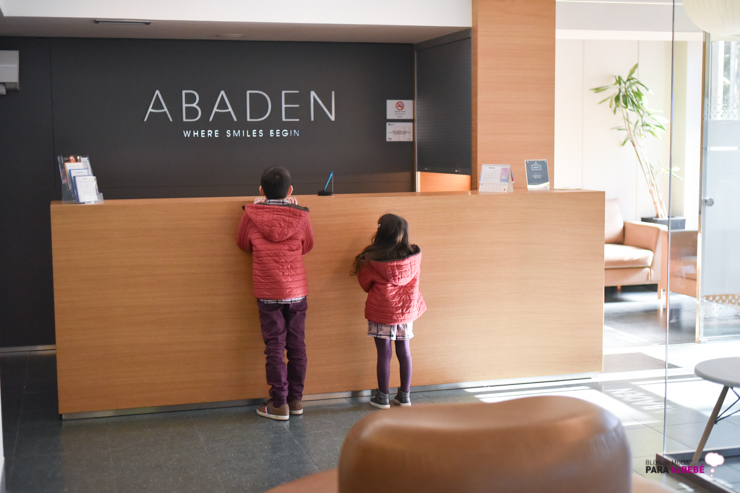
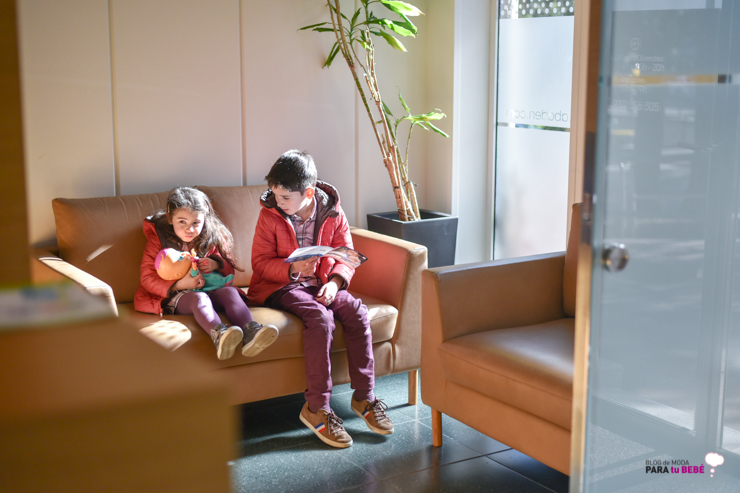
Con la revisión del odontopediatra y registros tomados, el equipo elabora un estudio completo de cada caso. También me gustó mucho que le enseñaran a los peques la rutina de higiene bucal diaria para evitar las caries y otros posibles problemas dentales en un futuro. Por ejemplo, con Valentina hemos empezado a utilizar hilo dental. Los adultos siempre lo hemos usado en casa pero no los niños.
Os preguntaréis ¿Cuando es recomendable realizar una primera visita? Esta es sin duda una de las cuestiones que nos planteamos los padres. A veces, se hacen revisiones en el colegio y ya nos indican si debemos o no visitar al odontopediatra. Una de las cosas que más me sorprendió es que me explicaron que hay familias que desconocen la importancia de hacer esta visita y llevan a los niños ¡a los 15 años por primera vez! Imaginad. Yo considero clave una educación en la higiene oral y también tener una guía en los hábitos alimenticios. Una de las cosas que le explicó a Jorge su dentista a los 4 años y medio es lo que debía y no debía comer. Fuera galletas, pan de molde que se engancha en los dientes, azúcar, etc. Pensad la cantidad de alimentos que la llevan oculta.
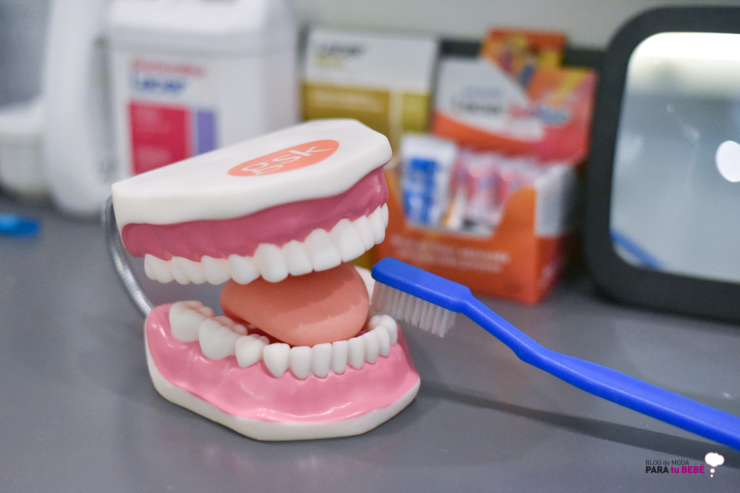
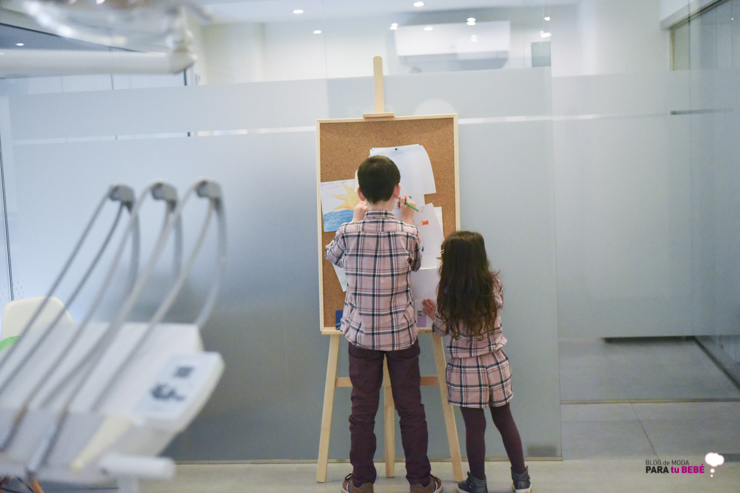
En Abaden nos hablaron de la importancia de tratar las caries en seguida para evitar mayores complicaciones o la afectación de las piezas definitivas en los niños. También realizar las visitas para poder hacer una detección temprana de posibles problemas de mordida u oclusión. Está comprobado que en casos tratados mediante aparatología funcional durante la infancia, los tratamientos ortodónticos posteriores (si se precisan) suelen ser de menor duración y con menores complicaciones.
Ellos recomiendan que la primera visita se haga a los tres años de edad como máximo. Así que nosotros ya fuimos tarde. Hicimos lo que suelen hacer todos los padres que es acudir solamente al dentista si se detecta una caries o cuando el niño tiene molestias. Pero lo importante siempre es la prevención.
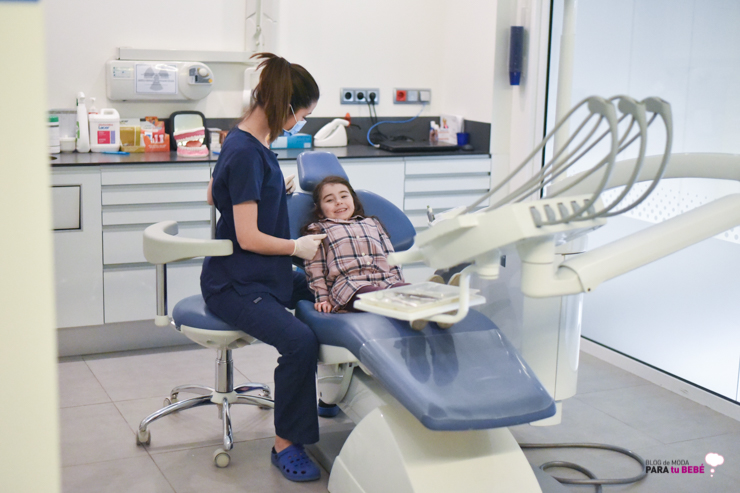
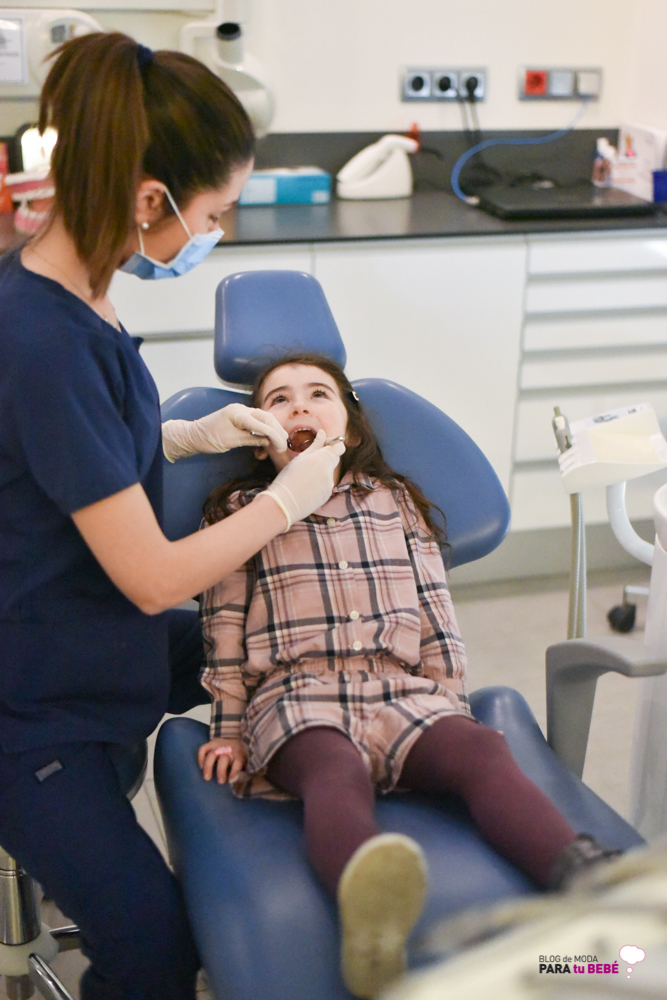
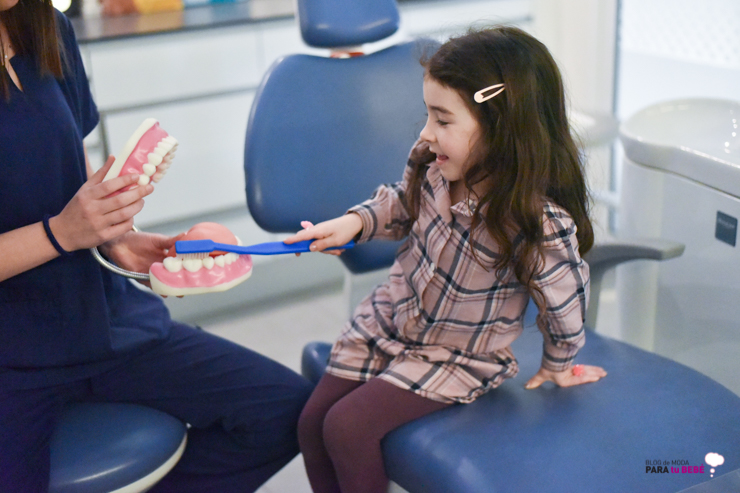
Pensad, que la mayoría de los niños que acuden a las consultas de Abaden para revisiones, se convierten en buenos pacientes a la hora de tratarse, ya que conocen al personal y están dispuestos a colaborar. En cambio, cuando llegan por primera vez por un problema y con dolores, la atención se complica. Así que os recomiendo una visita por lo menos anual aunque no haya problemas aparentes.
Nosotros hemos tenido que tratar las caries en los dientes de leche. Es importante hacerlo para evitar dolor y molestias para el niño, así como la afectación en los dientes permanentes. En Abaden también nos han enseñado qué dentrífico es el más adecuado para los niños. Por todo ello os recomendamos sus clínicas en este blog de puericultura.
WE CARE FOR THE DENTAL HEALTH OF THE LITTLE ONES IN ABADEN
It is a myth to think that, as the baby teeth fall out, you do not have to take care of or treat them. At what age did you take your children to the dentist for the first time? With Jorge we started at 4 years and a half and with Valentina at 5 years old. The first, a tooth had fallen out but with the littler one we did not expect it. We wanted to see how the baby teeth were doing because good oral health helps prevent problems in adult life. As I am taking care of my mouth at Abaden Dentists I went with them to this clinic. Do you know what I liked the most? they have pediatric dentists, that is to say, specialists in dentistry who know how to deal with children. It does not happen in all the centers but in those of Abaden that you can find in all Catalonia and they are own clinics, not franchises. In fact, it is a family business with more than 32 years of experience creating smiles, a value that gives me even more peace of mind when it comes to trusting them to take care of my teeth and that of my children. Keep reading to know all the benefits of pediatric dentistry.
Pediatric dentistry is the branch of dentistry that treats children. The pediatric dentist is in charge of exploring and treating children and newborns. It is also responsible for detecting possible anomalies in the position of the jaws or teeth to refer to the orthodontist and to make a restorative treatment if needed, usually treat the injuries, use sealants to seal and treat the caries produced and their consequences.
Surely one of your children has been hit, has broken a tooth or has had cavities. Going to the dentist does not like any of us, but the kids are especially scared. The first day they do not say anything because it is something unknown but the second day they do not want to return. That is why it is important to know how to deal with them. In Abaden what I have seen different from other clinics has been precisely the deal. They do not make going to the dentist traumatic for the little ones. The children have an area to paint and entertain before going to the room. There in the first visits to be performed oral hygiene to remove dental plaque and bacteria and a review is made.
With the revision of the pediatric dentist and records taken, the team elaborates a complete study of each case. I also liked very much that they taught the kids the routine of daily oral hygiene to avoid cavities and other possible dental problems in the future. For example, with Valentina we have started using dental floss. Adults have always used it at home but not children.
You will ask yourself when it is advisable to make a first visit? This is undoubtedly one of the questions that we raised parents. Sometimes, revisions are made in the school and they already indicate whether or not we should visit the pediatric dentist. One of the things that surprised me the most is that they explained to me that there are families who do not know the importance of making this visit and taking the children to the age of 15 for the first time! Imagine I consider an education in oral hygiene key and also have a guide in the eating habits. One of the things that your dentist explained to Jorge at age 4 and a half is what he should and should not eat. Outside cookies, sliced bread that gets stuck in the teeth, sugar, etc. Think about the amount of food that is hidden.
In Abaden they told us about the importance of treating cavities immediately to avoid further complications or the involvement of the final pieces in children. Also make visits to be able to make an early detection of possible bite or occlusion problems. It is proven that in cases treated by functional appliances during childhood, subsequent orthodontic treatments (if needed) are usually shorter and with fewer complications.
They recommend that the first visit be made at the age of three. So we were already late. We did what all parents usually do is go to the dentist only if a cavity is detected or when the child has discomfort. But the important thing is always prevention….
